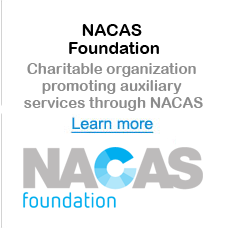
Propane: The affordable, alternative fuel for every campus
![]() Print this Article | Send to Colleague
Print this Article | Send to Colleague
Wouldn’t it be great if you could bottle up the energy of your students to fuel your campus? Until that time, you’ll have to look to other alternative fuels for sustainable solutions.
Institutions of higher learning are leaders in innovation, sustainability, and technological advancements. Environmentally friendly, energy-efficient, and cost-effective propane closely aligns with many existing campus initiatives.
How can propane benefit your campus?
Propane, known as autogas when used in on-road engines, is a low-carbon alternative fuel that reduces harmful greenhouse gas emissions by up to 80 percent compared with conventional gasoline and diesel vehicles. Our nation has abundant sources of propane, so much so that we are an exporter of the fuel. Plus, propane saves money by cutting fuel and operating costs by 30 to 50 percent compared with diesel and gasoline.
Emission reductions, cost savings
There are a number of applications for propane use around campuses, such as forklifts, lawn mowers, and vehicles.
When compared to their gasoline counterparts, propane-fueled lawn mowers reduce greenhouse gases by 50 percent and carbon monoxide by 80 percent. Plus, propane-fueled mowers often can be operated on ozone-alert days when local regulations ban the use of gasoline mowers. Keep in mind, propane is an approved alternative fuel under the Clean Air Act. And due to its chemical make-up, propane usage eliminates both fuel spillage and theft in lawn mowers. In comparison, 17 million gallons of gasoline are spilled every year due to refueling landscape equipment.
In forklifts, propane cuts emissions and takes less time to refuel than electric forklifts, while delivering consistent power.
The University of Louisville, a participant in the Association for the Advancement of Sustainability in Higher Education’s STARS Program, operates both lawn mowers and forklifts on propane.
"We save thousands of dollars per year in fuel savings with propane," said Aaron Boggs, assistant director of physical plant maintenance at the University of Louisville. "We know our emissions are much lower and we are able to stretch the time out between oil changes. Plus our overall maintenance on the engines has been reduced."
Transportation power
Many types of campus vehicles also run on propane autogas, such as shuttles, maintenance trucks, and security vehicles. Propane-autogas-fueled vehicles emit about 12 percent less carbon dioxide, about 20 percent less nitrogen oxide, and up to 60 percent less carbon monoxide than gasoline-powered vehicles.
In Harrisonburg, Va., James Madison University (JMU) implemented an extensive environmental stewardship and sustainability program, which includes a green building policy and an alternative-fuel fleet program. Currently, JMU operates 80 alternative fuel vehicles, including 12 that were converted to run on propane autogas. The university worked with the Department of Energy’s Clean Cities program to help fund the conversions. The university reports these dozen vehicles displace 2,400 gallons of gasoline annually, and that it pays about 40 percent less to fill them up with propane autogas compared with gasoline. JMU is in the process of converting five more sedans and trucks to propane autogas.
"We save $1.50 a gallon, maintenance issues have been minimal, and our drivers’ experience has been positive," said Mike Dalmolin, sustainability coordinator at JMU.
The university also uses propane to heat 15 of its campus buildings. Propane furnaces emit 69 percent fewer greenhouse gas emissions than electric furnaces and 64 percent fewer than electric baseboards. Energy Star-qualified propane furnaces are up to 15 percent more efficient than standard models.
When propane is used for water heating it can reduce energy costs by up to 50 percent and reduce greenhouse gas emissions by up to 61 percent compared with standard electric water heaters. Meanwhile, propane-powered generators are excellent sources of power in the event of emergencies.
The technology is in place, and this clean American fuel is readily available to fuel your campus.
Tucker Perkins is the chief business development officer of the Propane Education & Research Council (PERC) in Washington, D.C. PERC is a check-off program established, operated, and funded by the propane industry. The only energy council of its kind, PERC leads safety and training efforts among propane retailers and consumers and drives technology development to expand adoption of propane as a clean, domestic, and affordable energy source. PERC programs benefit a variety of industries including fleet vehicle management, landscaping, residential and commercial building, agriculture, and material handling. For more information, visit propanecouncil.org.

For more information visit: www.nacas.org


